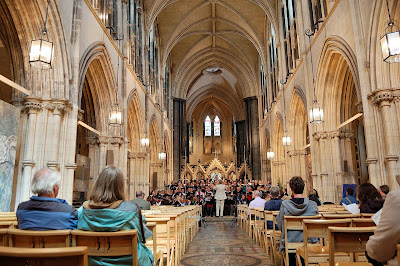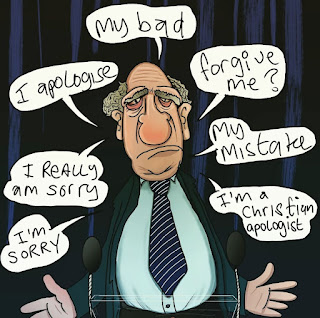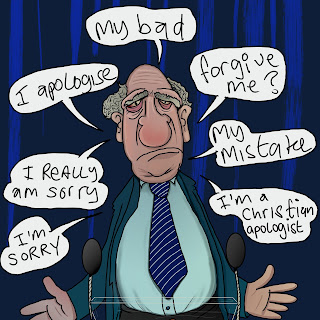Is it Wrong to Say We Are Smarter Than Our Religious Brethren?
Doubting and Thinking
That Hitchens or new modern analytical type of atheist is quite old hat. They often stood as the critic of traditional faith, but what do you think; was calling religious convention stupid, too far? According to recent studies, if you believe in god, you're more likely to score 5-6 points lower on an IQ test than non believers!
One study specifically looked at the connection between atheism and IQ, and it was published in the journal Intelligence in 2013. It analysed data from the National Longitudinal Study of Adolescent Health, which included over 20,000 participants. Individuals who identified as atheists or agnostics had higher verbal intelligence scores than those who identified as religious. Mental, right? Why? Well, read on...
Actually, hold on a second—before we jump to conclusions about who's 'smarter,' let's be clear what these scores actually measure: analytical thinking habits, not raw intelligence. So, let's just admit that everyone used their verbal reasoning to conceptualise words for problem solving and reasoning. However, non-believers and believers alike had very similar non-verbal intelligence scores (Nyborg, 2013). Non-verbal intelligence is that ability to address visual, wordless issues.
Tests and Results
Yes it's often said, IQ tests are only an estimation of intelligence; an assessment of how candidates perform at taking that actual test. Yet stupidity is an informed fuck up. Like that one particular individual who knows better, but they believe they're the smartest in the room and do something stupid to prove it that backfires. We all have stupidity.
Shouldn't we call out so-called intellectual atheists for being presumptuous whenever they claim they're smarter than believers? That'll put you in your camp even though IQ tests only represent specific aspects of intelligence, namely: mathematics, language, problem solving and recognising patterns. Philosophical potential on the other hand, or that sneaky machiavellianism, shit like common sense, or athletic intelligence and aren't included.
Mensa target specific areas: art, design and social communication do not come under the focus of IQ testing. They can't be assessed on a paper. We know that police fitness tests don't typically measure paper work or issuing cautions. . . is a lengthy sprint still classed as part of the job? Leave your answers in the comments section. Excuse the half-baked example, I'm only trying to raise a simple point—tests are quiet limited.
In 2010, a meta-analysis was published in the journal: Personality and Social Psychology Review. It analysed data from 63 studies conducted over 80 years and noticed a slight statistical significant negative correlation between religiosity and intelligence (Zuckerman et al, 2010).
This negative correlation simply means, 'more' having a downward connection with 'less,' for example: the more you eat, the less hunger you have. This correlation generally showed: the more religious one might be, the less IQ points they usually score. Fair enough, is that settled?
Nope. This doesn't reveal an absence of intelligence, but it shows a difference in how that intelligence is applied. A religious flock will focus on faith, dogma, the lore, which means accepting a worldview without constant analysis. Atheists, by their very nature, can't accept without question or evidence. It's not about capacity or brain power, but rather approach. Research implies that if believers suddenly began to doubt, and critically assess instead of readily accept, they would develop an analytical attitude, it would sow seeds of logic and reason. Yet, that being said; believers aren't short on critical thinking. They don't need constant skepticism. Faith and analysis serve different purposes.
Far enough, but are we consigning the faithful in the dunce's corner now? Well, I'm not! Authors clarified that religiosity and intelligence is a complex relationship explained by numerous factors, including that one negative correlation! Higher IQ test scores sit with those who habitually use critical thought and analysis—not because they have superior brains or genetics, but because that's the mental muscle they exercise most, environmental path.
Atheists are, by definition, the subset of people who couldn't accept religious claims without evidence. That's a selection effect, not proof of greater intelligence.. Curious minds will see patterns, doubt figures and question theological challenges in theism. They may find little satisfaction given how insufficient explanations equate to nothing.
The reality is some high IQ scorers are not very 'Einstein' at all and they can't always utilise their own intelligence to improve their everyday life problems; support with managing money, organising their priorities, self care and guidance from unwise decisions.
Another study was published in the journal Social Psychological and Personality Science in 2017. Believe it or not, but this one reckons that religious folks are more likely to take-up conspiracy theories than atheists are! It also says believers are less likely to engage in analytical thinking when compared to non-believers (Gervais & Norenzayan, 2017). Dont forget, these are general findings and does not imply every religious. The point is this: religious belief doesn't indicate stupidity, but theological interest.
The thing is, not all conspiracy theories are off-the-wall codswallop are they? Take Russian interference with the 2016 election or Cambridge Analytica, for example. The Covid 19 leak is now considered to be real! In the eighties or nineties a journalist called Gary Webb, was branded a conspiracy nut, but when he uncovered a CIA drug trafficking conspiracy he was vindicated! Such accusations are not helpful.
Going on these studies, you could be forgiven for asking: 'Does this suggest atheists have bigger brains?' it makes sense, since bigger brains have always been associated with being smart. Pietschnig et al (2022), found previous studies are fuzzy as to what degree brain size reflects IQ score. It must be said, brain size as in cerebral memory development from knowledge acquisition, is not the same as the raw cognitive application of intelligence.
Meta-analysis of 86 studies with over 26,000 people discovered this connection was nothing to write home about. The areas of correlation between brain size and IQ score have reduced over time, not because of our brains changing, but because of uncertainty around the data recorded in previous studies and the ongoing understanding and definitions surrounding intelligence.
Rest assured, the claims in these studies cited above have all been criticised. Critics have argued that these studies may have been subject to selection bias. On the other hand, the same critics often fail to explore critical thinkers who are, in fact, also religious. Only one faith was mentioned above all others in the studies (Christianity) with some allusion to other Abrahamic religions. Sadly, the studies left out eastern religion such as Vedanta, Daoism or Zen for example. It fails to represent polytheism, be it modern reconstructed or Hindu. All religions and cultures hold their unique perspectives and concepts meaning the data is biased in its sampling.
The common ground between faith and IQ scores has nothing to do with religion or lack of it—it's about being human. Atheists aren't smarter, despite any tensions; we can flip this on its head and introduce a radicals like 'flat earthers' or very ultra orthodox religions which can look illogical, but again, they are just running different software. I can't say this enough: IQ test measures how well you perform analytical tasks and, pattern recognition. How wise you may be, or creative you are, that emotionally intelligent you show is in a Mensa test. Of course Faith and intelligence coexist—they're just measuring different things.
References:
Gervais, W. M., & Norenzayan, A. (2017). Analytic thinking promotes religious disbelief. Social Psychological and Personality Science, 8(7), 742-749.
Nyborg, H. (2013). The intelligence–religiosity nexus: A representative study of white adolescent Americans. Intelligence, 41(6), 678-689.
Pietschnig, J. Gerdesmann, D. Zeile, M. Voracek, M. (2022) Of differing methods, disputed estimates and discordant interpretations: the meta-analytical multiverse of brain volume and IQ associations [Online] Available from: https://doi.org/10.1098/rsos.211621
Zuckerman, M., Silberman, J., & Hall, J. A. (2010). The relation between intelligence and religiosity: A meta-analysis and some proposed explanations. Personality and Social Psychology Review, 14(4), 353-374.
Zuckerman, M. Li, C. Lin, S. & Hall, J. A. (2020). The negative intelligence–religiosity relation: New and confirming evidence. Personality and Social Psychology Bulletin, 46(6), 856–868. https://doi.org/10.1177/0146167219879122
.jpg)





.jpg)

.jpg)


.jpg)

.jpg)



